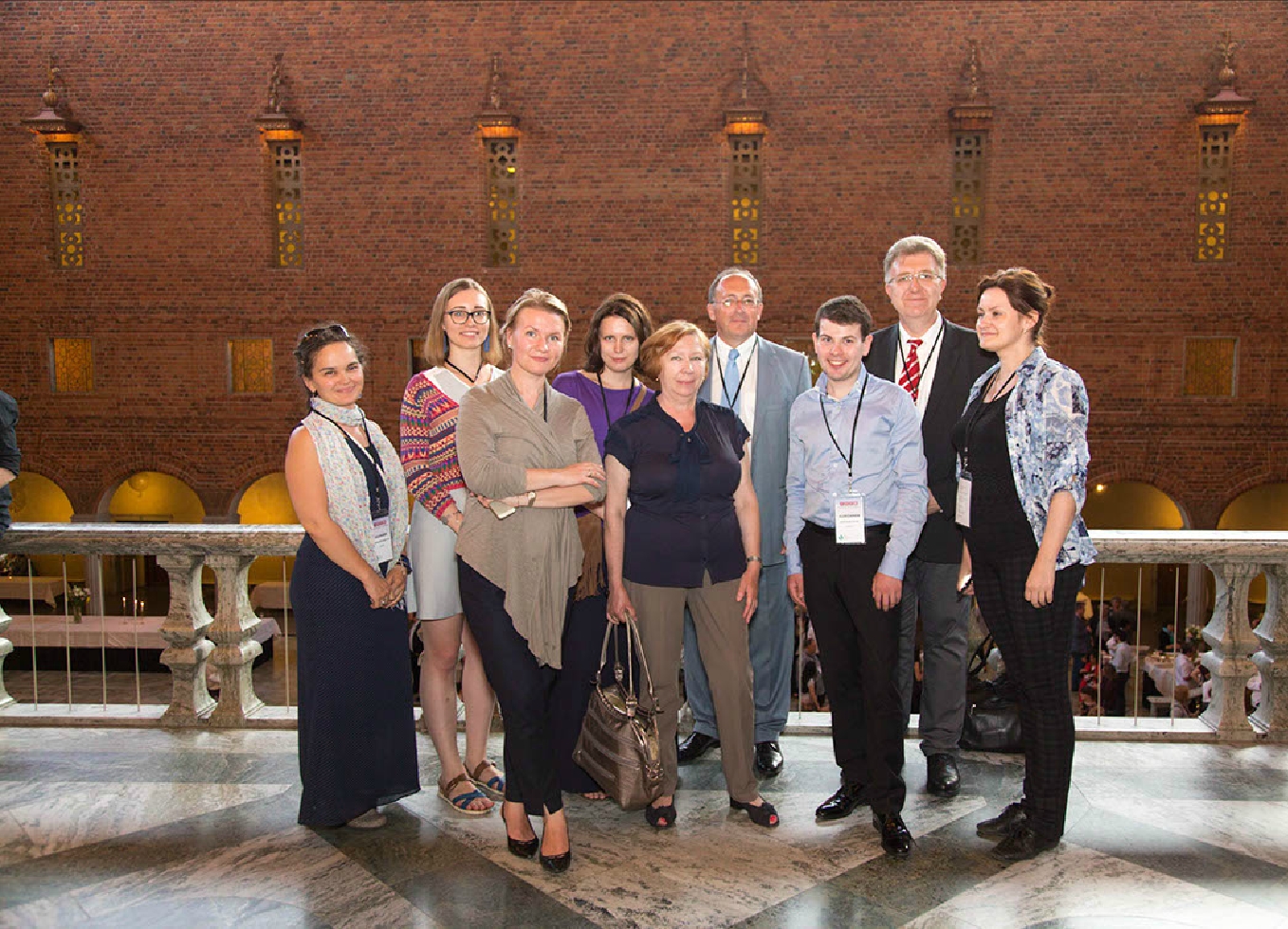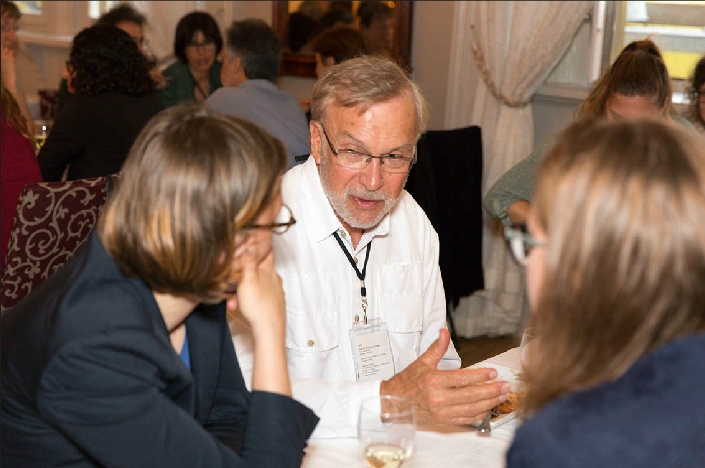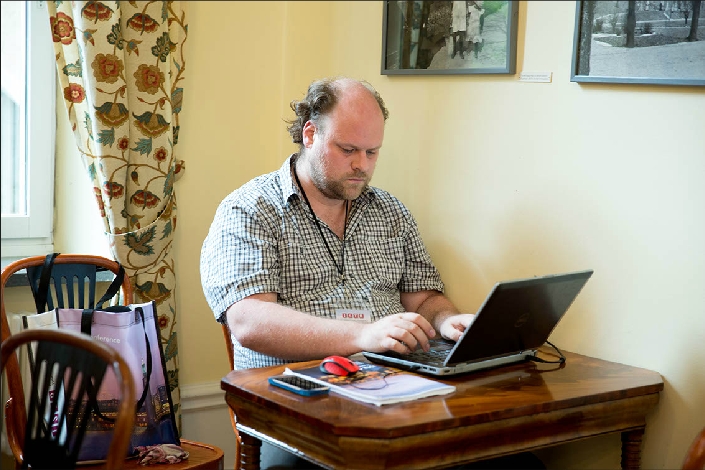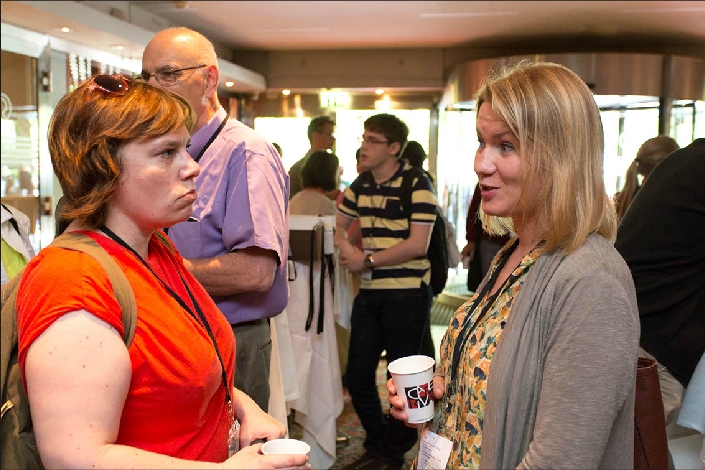12th ISTR Conference: HSE Researchers Presented Record Number of Papers
 Delegation of HSE Centre for Studies of Civil Society and Non-Profit Sector
Delegation of HSE Centre for Studies of Civil Society and Non-Profit Sector
The 12th International Society for Third Sector Research (ISTR) Conference took place in Stockholm and was entitled ‘The Third Sector in Transition:Accountability, Transparency, and Social Inclusion’. The conference is held biannually and is a major academic event in its field.
ISTR is an organization committed to building a global community of scholars and interested others dedicated to the creation, discussion, and advancement of knowledge pertaining to the Third Sector and its impact on human and planetary well-being and its international development. Founded in 1992, the association promotes research and education in the fields of civil society, philanthropy, and the nonprofit sector, bringing together researchers and professional in various fields from 80 countries.
Over 600 people took part in the conference this year. Russia was represented by 26 participants, and 21 of them were from HSE, mostly from the HSE Centre for Studies of Civil Society and Non-Profit Sector, including the International Laboratory for Nonprofit Sector Studies. HSE’s delegation was the biggest among attending universities this year. The second biggest delegation was from Indiana University, USA, with 15 participants.
Non-profit organizations must really be non-profit
Lester Salamon, Academic Supervisor at the Laboratory for Nonprofit Sector Studies, presented two reports at conference panels. One of the panels was dedicated to measuring the international impact of volunteering. Lester Salamon was a discussant at the panel ‘Contemporary Issues in Russian Civil Society’, and an organizer and moderator at ‘Reconceptualizing the Third Sector: Towards a New Consensus’.
Lev Jakobson, Academic Supervisor at theCentre for Studies of Civil Society and Non-Profit Sector, was an organizer at the paper session ‘The Third Sector and the Welfare State’, and also presented two papers. One of them was on the expert community as an interface for communication between civil society and public authorities. The second was about the non-distribution constraint for non-profit organizations in Russia. The paper emphasized that such an essential feature of non-profit organizations as the non-distribution constraint, formalized both in Russian and international legislations, can be an important factor in promoting public trust in non-profit organizations.
 |
| Lester Salamon with colleagues |
Paternalism or partnership?
The Centre staff organized two discussions as part of the conference. Stefan Toepler, Leading Research Fellow of the HSE InternationalLaboratory for Nonprofit Sector Studies, chaired the panel ‘Civil society in hybrid regimes: the case of NGOs in contemporary Russia’.
During this panel, two Laboratory researchers, Ulla Pape and Yulia Skokova, presented a paper based on a three-year empirical study, including 140 interviews with representatives of non-profit organizations, regional experts, and municipal authorities.
Alexander Zverev and Maria Myasnikova, research assistants at the Laboratory, presented a paper analyzing attitudes towards the state prevailing among non-profit organizations’ representatives in Russia. They express both paternalistic (dependent) and partnership attitudes (active independent position), as well as mixed attitudes. And attitudes among non-profit organizations largely depend on the regional policies. It was mentioned that the programme by the Ministry of Economic Development had clear criteria (social coverage, welfare receivers coverage, attracting internal funds etc) and promoted the partner type of relations, but the regional implementations of the programme differ depending on which executive body is responsible for its realization.
Less paperwork
Irina Krasnopolskaya, researcher at the international laboratory, and Irina Mersiyanova, Director of the Centre for Studies of Civil Society and Non-Profit Sector, spoke at the panel ‘Contemporary Issues in Russian Civil Society’ organized by Christian Fröhlich, Academic Supervisor at the Comparative Social Research programme. Their paper ‘The impact of governmental support on the nonprofit sector development in Russian regions’ was based on research carried out by the international laboratory and the Russian civil society monitoring study which has been carried out by the Centre since 2006.
Lester Salamon commented on the presentation that the contribution from the state support programme, which was generally well organized, was limited by institutional conditions and the specifics of procedure.
 |
| Christian Fröhlich |
Civil activity weakens the willingness to emigrate
Natalia Invanova, Senior Research Fellow at the Centre, presented a paper co-authored with Irina Mersiyanova and Elena Vakulenko, Senior Research Fellow at the HSE Laboratory for Macro-Structural Modeling of the Russian Economy. The topic of the paper was ‘Civic Engagement and Emigration Intentions of Russian Citizens’.
According to the paper’s authors, the effective use of institutional channels for civil engagement will mobilize Russians’ civil potential to improve living standards and will prevent emigration intentions from becoming action.
What hinders the development of cross-sectoral partnership
Vladimir Benevolenski, Leading Research Fellow at the Laboratory, spoke on ‘Nonprofits in post-communist welfare systems: doomed to remain a “boutique operation”?’ The audience learned that the factors hindering cross-sectoral partnership in the social sphere include poor public trust in non-profit organizations and their professionalism, as well as a lack of efficient mechanisms to attract specialized non-profit organizations to participate in formulating the state social policy agenda.
Further analysis of interaction between the state and non-profit organizations in Russia was presented in a joint paper by Vladimir Benevolenski and Stefan Toepler on ‘Government Dependency: Issues, Causes, and an Application to the Russian Case’. Stefan Toepler told the audience about various aspects of interaction between the state authorities and private funds in the U.S., as well as with organizations for people with disabilities in Russia.
 |
| Irina Krasnopolskaya and Meri Kulmala |
Female executives improve innovation in non-profit organizations
Gulnara Minnigaleeva, research fellow at the Centre, presented a paper ‘Innovations and management in nonprofit organizations in Russia’, in which she presented factors influencing the innovativeness of the organization as a whole and in certain operations. Interestingly, the factor of resources for implementing the innovations makes the most positive impact.
The data on the personality of top executives brought some surprising results. For example, female gender of the executive positively influences the level of innovation, higher education influences negatively, and an academic degree influences positively.
Irina Korneeva, research fellow at the Centre, spoke on ‘Determinants of older persons’ participation in monetary donations: Case of Russia’.
International cooperation
In addition to discussions of academic issues, the academic exchange of experience with international colleagues was also an essential part of the conference. International researchers who participated in the HSE April Conference also took part in the panels, such as Meri Kulmala (Finland), Eleanor Bindman (Great Britain), Sergey Lubovnikov (Great Britain), and others. These intensive discussions were a sign that HSE is becoming a centre of attraction for civil society and non-profit sector researchers from all over the world.
It’s worth noting that the Centre for Studies of Civil Society and Non-Profit Sector headed by Irina Mersiyanova has been implementing the Programme promoting the professional community of civil society researchers in post-Soviet states since 2008. At the initiative of Christian Fröhlich, Academic Supervisor at the HSEComparative Social Research programme, a regional researcher network in Central and Eastern Europe, as well as post-Soviet states has been created. Its organizing committee includes Gulnara Minnigaleeva and Stefan Toepler.
Vladimir Benevolenski
Aleksandr Zverev
Irina Korneeva
Irina Krasnopolskaya
Gulnara Afruzovna Minnigaleeva
Maria Myasnikova
Yulia Skokova
